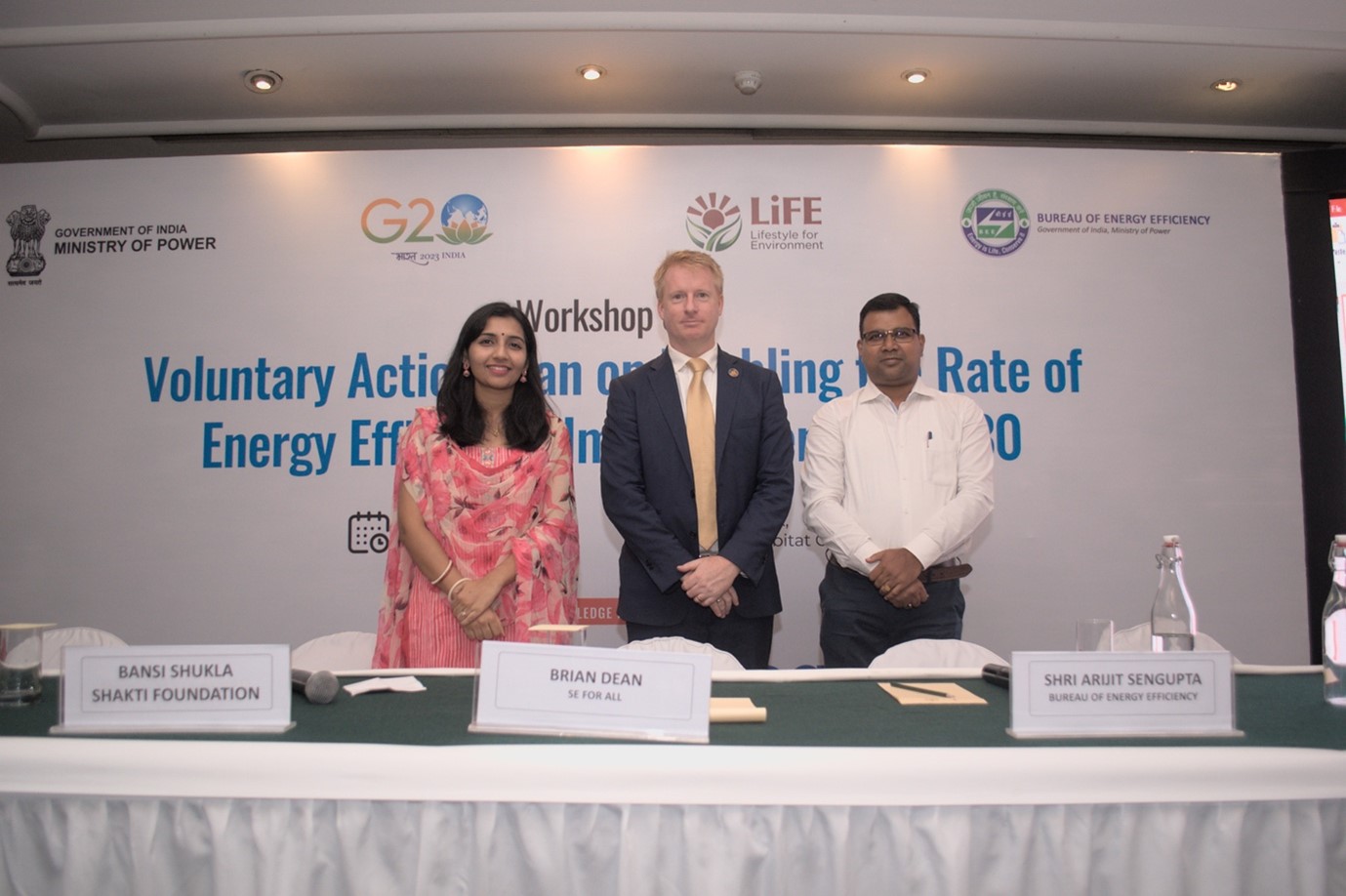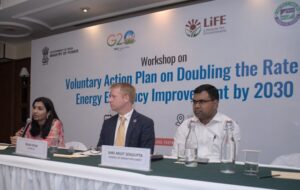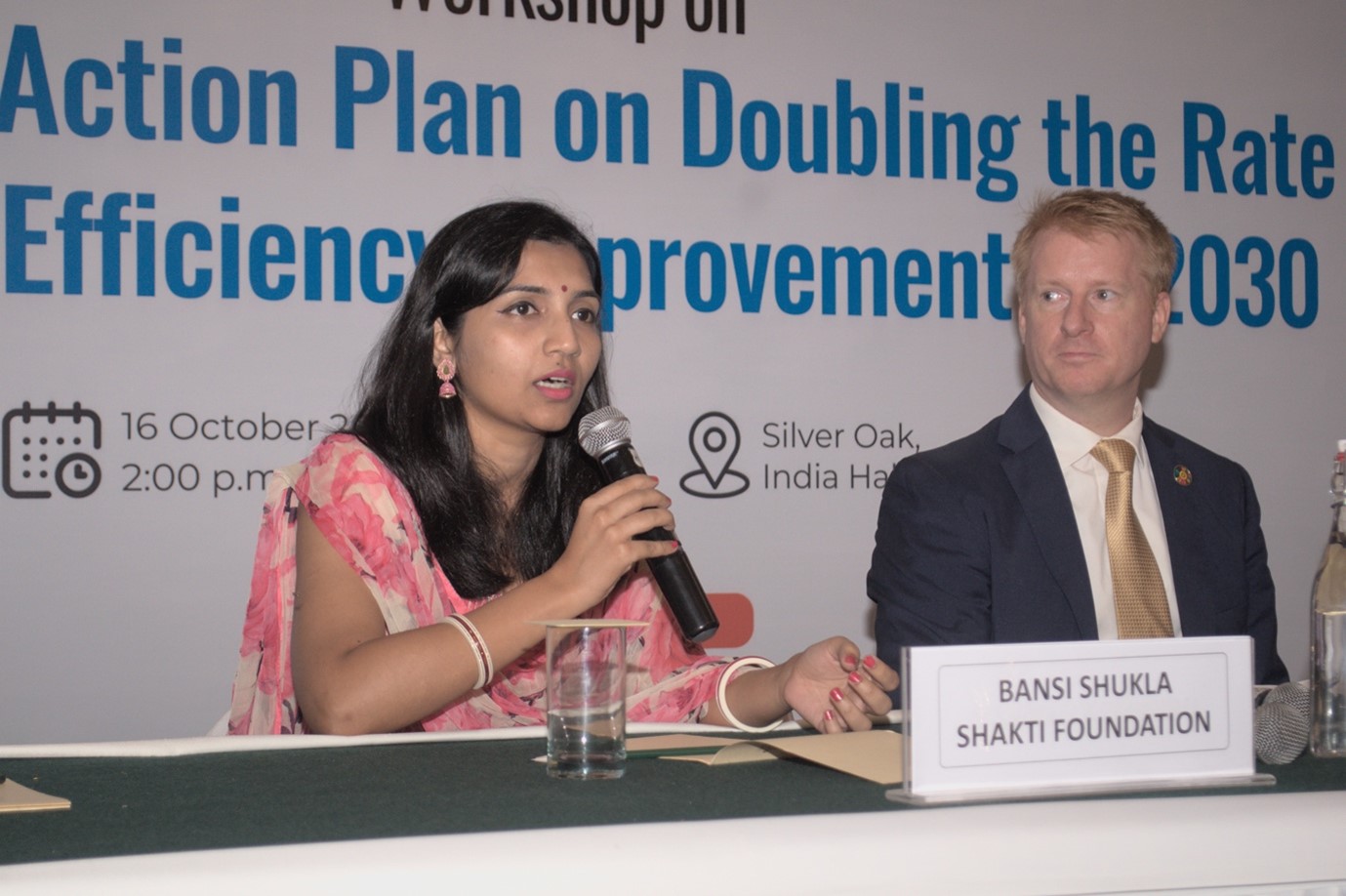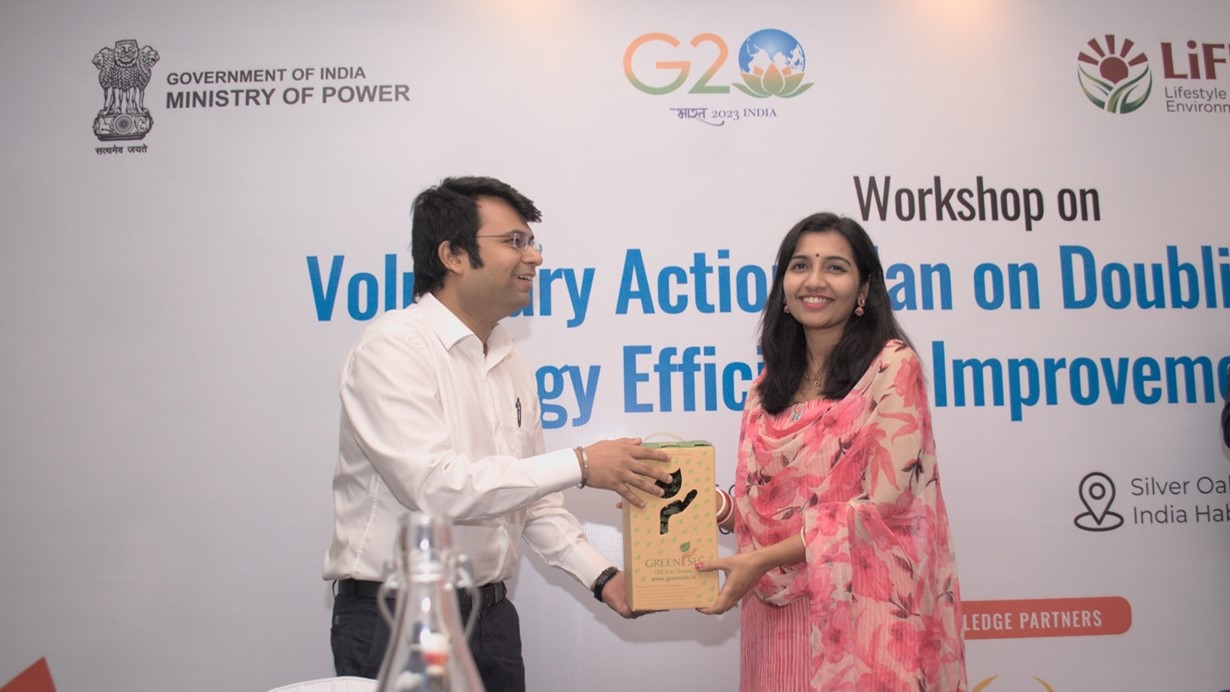
Energy efficiency is a core component of the global transition towards clean energy and sustainable development. It offers significant potential to mitigate approximately 40% of global greenhouse gas emissions, thereby supporting the goals of the Paris Agreement, while also facilitating universal electricity access and optimizing the use of this essential resource. India has emerged as a leader in this domain through its comprehensive “Strategic Plan for Advancing Energy Efficiency AcrossDemand Sectors by 2030,” developed during its G20 Presidency. The Strategic Plan identifies five high-impact opportunities targeting key demand sectors and addressing challenges relevant to developing economies.
 Informed by this strategic plan, both the G20 Energy Transition Working Group and the G20 New Delhi Leaders’ Declaration endorsed a voluntary action plan to double the rate of improvement in energy efficiency by 2030. Additionally, the Prime Minister’s Mission LiFE initiative has drawn international focus to the importance of sustainable lifestyles and conscious consumption choices, with energy efficiency as a core priority.
Informed by this strategic plan, both the G20 Energy Transition Working Group and the G20 New Delhi Leaders’ Declaration endorsed a voluntary action plan to double the rate of improvement in energy efficiency by 2030. Additionally, the Prime Minister’s Mission LiFE initiative has drawn international focus to the importance of sustainable lifestyles and conscious consumption choices, with energy efficiency as a core priority.
Looking ahead, doubling the global rate of energy efficiency improvement will require coordinated efforts across key consumption sectors such as buildings, transportation, and industry to accelerate progress towards sustainability.
The G20 nations can advance implementation of the ‘Voluntary Action Plan on Doubling the Global Rate of Energy Efficiency Improvement by 2030’ through several key approaches. First, setting ambitious yet tailored energy efficiency targets for different industry sectors. Second, improving access to financing for energy efficiency projects utilizing mechanisms like green banks and public-private partnerships. Third, developing, strengthening and enacting comprehensive energy efficiency policies and regulations. International cooperation is also crucial to address common barriers, foster innovation, and share experiences. Robust monitoring and reporting frameworks can transparently track progress within G20 countries and beyond.
A workshop was organised on October 16, 2023, with the objective to discuss implementation of the Strategic Plan’s recommendations. Global objectives included increasing collaboration between developed and developing G20 countries, and strengthening understanding of energy efficiency tracking and key financing and partnership mechanisms to further progress. India-specific objectives aimed to implement high-impact opportunity areas through cross-sharing best practices, case studies and learnings from G20 nations, while intensifying business engagement in technology promotion and private sector investment.

During a panel discussion on “Opportunities to Double the Global Rate of Energy Efficiency Improvement by 2030,” Bansi Shukla, Senior Programme Manager, Industry, Buildings & Cooling highlighted opportunities for international collaboration to advance best practices in key sectors including buildings, industry and transportation, and coordinate financing for energy efficiency. Specifically, I spoke about focusing on three areas to make energy efficiency projects more attractive to climate and energy financiers, particularly in developing economies: implementing supportive policy frameworks and incentives; establishing risk mitigation mechanisms; and showcasing successful project outcomes and impacts.

